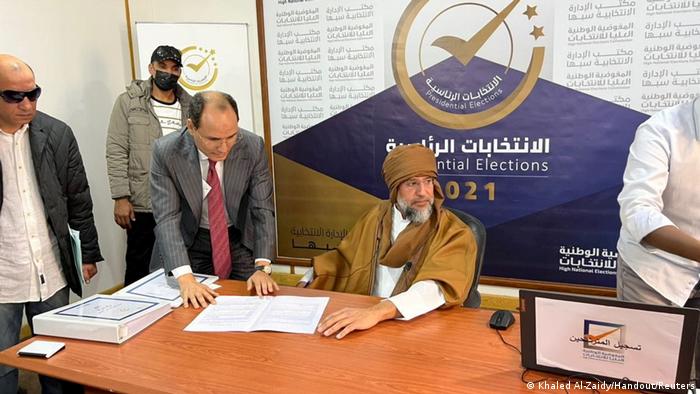
Libya’s presidential election that was scheduled to take place on December 24 was called off on Wednesday.
Lawmakers on the committee overseeing the vote concluded holding it on time would be "impossible."
"After consulting the technical, judicial, and security reports, we inform you of the impossibility of holding the elections," lawmaker Al Hadi al-Sagheer wrote to Parliament Speaker Aguila Saleh.
The High National Electoral Commission (HNEC) suggested postponing the first round of voting to 24 January, according to a statement on its Facebook page.
Why was the Libya vote postponed?
The Commission disbanded electoral committees late on Tuesday and handed responsibility for the vote over to the parliament.
It never released a final list of candidates, with many of them highly contested.
In total, close to 100 people had been running for office in the deeply divided and war-torn country.
Other obstacles include disputes over the laws governing the elections, infighting among armed groups, a long-running rift between the country's east and west, and the presence of thousands of foreign fighters.
What this means for the UN peace process
Friday's election was to mark a fresh start for war-torn Libya a year after a landmark ceasefire.
The cancelation of the presidential poll is a major setback to the peace process aimed at ending a decade of chaos in the wake of a 2011 revolt that removed late dictator Moammar Gadhafi.
Large numbers of Libyans had registered for the vote and some lawmakers have called for protests after it was called off.
The status of the interim government that was installed in March as part of the UN peace process is also at risk.
The US ambassador to Libya, Richard Norland, said the delay was a disappointment.
He urged the parties to "expeditiously address all legal and political obstacles to hold elections, including finalizing the list of presidential candidates."
Norland said arrangements for the elections should be a priority.